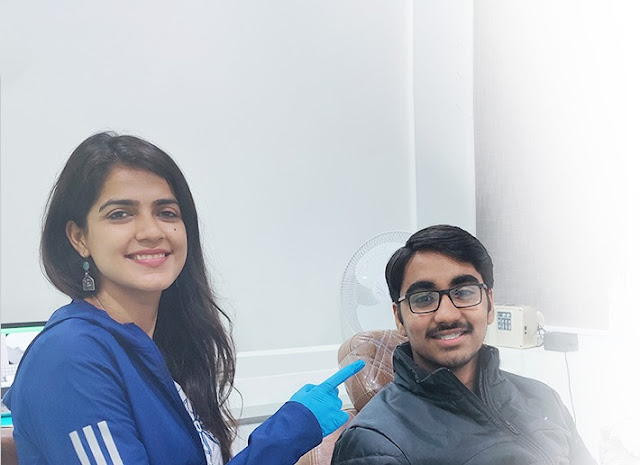Top Seven Dental Issues Among Children
Childhood is a time of enjoyment, growth, and adventure. But these years of child growth are also responsible for most of the dental issues. Although many dental issues that affect children also affect adults, children are more prone to developing dental issues because the child's teeth are still developing and are less durable than those that are permanent. Untreated dental issues can result in improper tooth development and misalignment, which can cause more significant issues as a child gets older. Knowing the causes of common pediatric dental problems will enable parents and their children to take preventative measures.
In this blog, we will explore the top seven dental issues children encounter, along with advice on how to avoid them. To make this post informative, we have gathered insights from Dr. Ravneet Kaur, the best dentist for children in Delhi. Continue reading to learn.
Common Dental Issues Among Children
Dr. Ravneet Kaur, renowned as the best dentist for children in Vasant Vihar, has shared the following dental issues that are very common among children:
- Tooth Decay (Cavities)
The majority of young children struggle to brush and floss on their own. When combined with the possibility that some children's diets are high in sugar, cavities can become a serious problem. Tooth decay occurs when dental plaque accumulates on the surface of teeth. Plaque acid eats away at the enamel, causing the tooth to eventually wear down.
Solution: Until a child can manage a toothbrush with a firm grip and control on their own, parents should supervise and assist their children while they brush their teeth. Early tooth decay can be avoided if one makes sure their children brush their teeth daily to eliminate food particles, bacteria, and plaque. If a cavity does occur, it is usually treated with tooth filling, which involves removing decay by drilling and then filling the hole with a durable composite material.
- Tooth Sensitivity
Sensitive teeth can cause discomfort and distraction, frequently distracting the child's schedule and concentration. Children's tooth sensitivity can be caused by various things, so it is important to diagnose the underlying cause. A child's teeth may become sensitive for a variety of reasons, including:
- Decaying areas (cavities)
- Newly erupted permanent teeth
- Enamel wear and acid erosion
- Bruxism, or teeth grinding
- A broken or absent filling
Solution: There are several treatments available for children with sensitive teeth that can help lessen their pain and suffering. In order to stop the problem from getting worse, one should visit the dentist if a dental condition is causing the sensitivity.
- Dental Emergencies
Dental emergencies can occur at any moment. Children who are engaged in sports, playing rough with their siblings, or falling off a bike are all activities that can result in dental accidents. Teeth may chip, break, or crack due to these mishaps. More serious situations may result in the total loss of a permanent tooth.
Solution: If a child loses their permanent tooth, get in touch with the dentist immediately to schedule an emergency appointment and have the tooth extracted. Put the tooth in clean water, saline solution, or milk. With a retainer, the dentist might be able to replace the permanent tooth in its socket.
- Pediatric Gingivitis and Gum Disease
People might have believed that gum disease was a dental issue only caused by adults. Children can develop gingivitis and gum disease, common pediatric dental conditions. The first sign of gum disease is gingivitis, characterized by red, swollen gums and light bleeding when your child brushes or flosses.
Solution: Children who have poor oral hygiene are more susceptible to aggressive gum disease. Gum recession, swollen areas, and mouth pain are common symptoms. Daily brushing and flossing could prevent gingivitis and gum disease. Sometimes, a child's teeth may grow so unevenly and closely together that they become difficult to clean, leading to gum disease or gingivitis.
- Orthodontic Problems
Children rarely have perfectly straight teeth if they are not treated. Fortunately, there are lots of orthodontic treatments out there to help a teen or child smile confidently. Genetics frequently plays a part in orthodontic issues, as the size and form of the jaw affect how the child's teeth erupt and converge. Children with misaligned teeth frequently have open bites, underbites, overbites, and spacing issues.
Solution: It is advisable to schedule your child's first orthodontic consultation for when they are seven or eight years old. Significant crowding and misalignment of the child's teeth can lead to fractured teeth, gum disease, and problems with oral hygiene.
- Excessive Thumb Sucking
Thumb-sucking and pacifier use are common ways for babies, toddlers, and young children to relieve anxiety. Long-term thumb sucking can affect a child's tooth development, but this is not an issue until the child is older and continues the habit. As a result, parents ought to discourage the habit from developing past the toddler years.
Solution: The most common causes of open bites are pacifier use and thumb sucking over time. When there is a gap between the upper and lower front teeth, even when the mouth is closed, it is known as an open bite. This may cause a child to have trouble biting and chewing, even impacting their speech.
- Grinding
Most infants and young children exhibit this uncontrollable behavior. As their primary teeth begin to erupt, children may clench or grind their teeth out of jaw discomfort. But once their teeth erupt, kids stop doing this. However, some kids might carry on clenching their teeth, increasing the possibility of tooth enamel erosion. This could lead to tooth decay or even sensitive teeth.
Solution: If it continues, one should consult the dentist timely.
Conclusion
The early years are full of enjoyment for kids. But the parents should also ensure they teach them healthy habits that will take them a long way in their lives. Parents should teach their children good dental hygiene habits to avoid those painful and discomforting dental issues. Parents should teach their children by involving them in a fun activity. The best way to assist children in learning the best dental hygiene habits is to create a peaceful, happy, and enjoyable experience. Choose a pediatric dentist who has worked with children and has compassionate behavior to help children learn things easily.
If one is looking for the best child doctor or orthodontist in Delhi, one may consult with Dr. Ravneet Kaur at Smiles by Dr Ravneet Dental Clinic. She is compassionate towards children and is known for her special dental skills in treating young patients at her clinic. Consult with Dr. Ravneet Kaur right now to learn more about the treatments she provides!
Read More:




Comments
Post a Comment